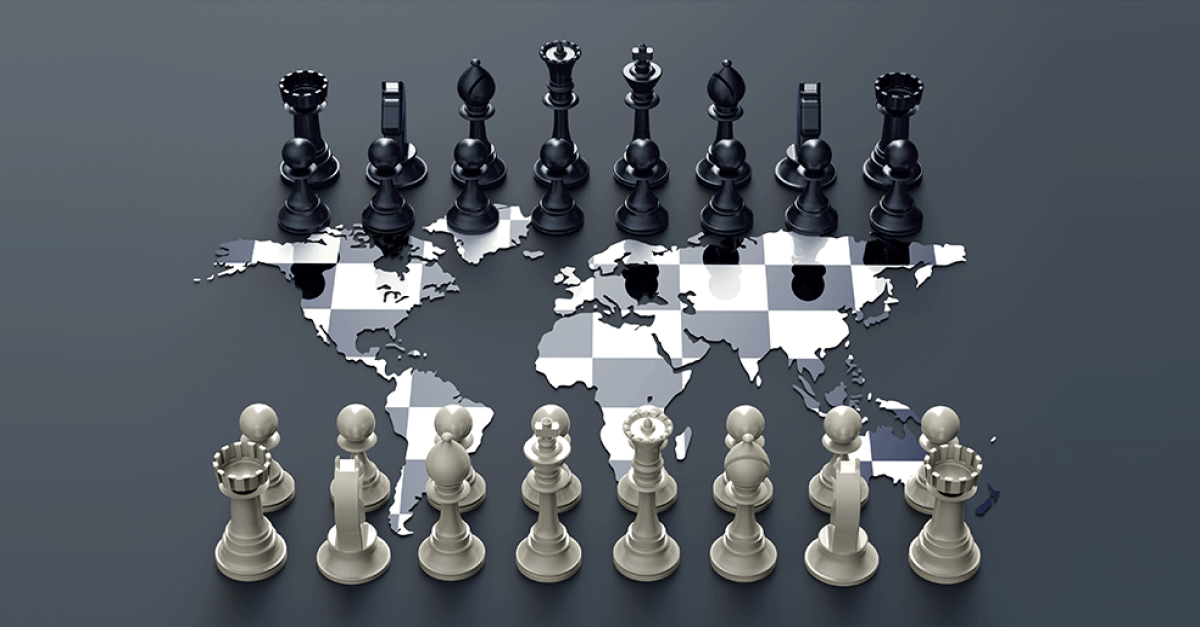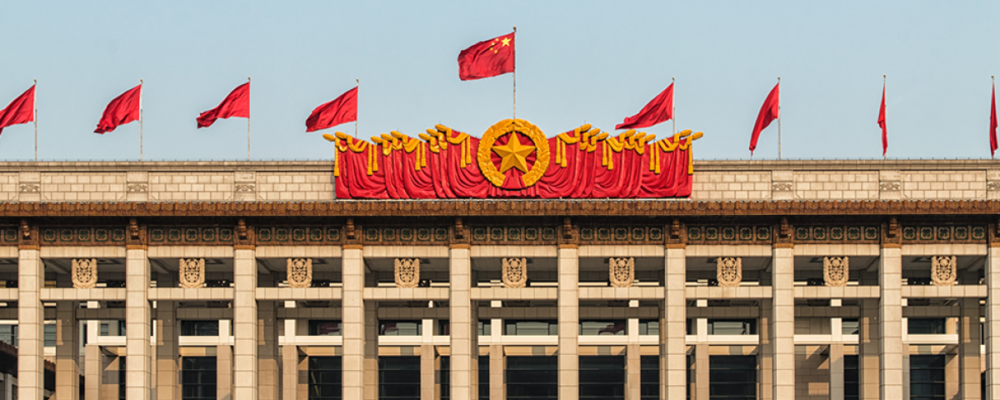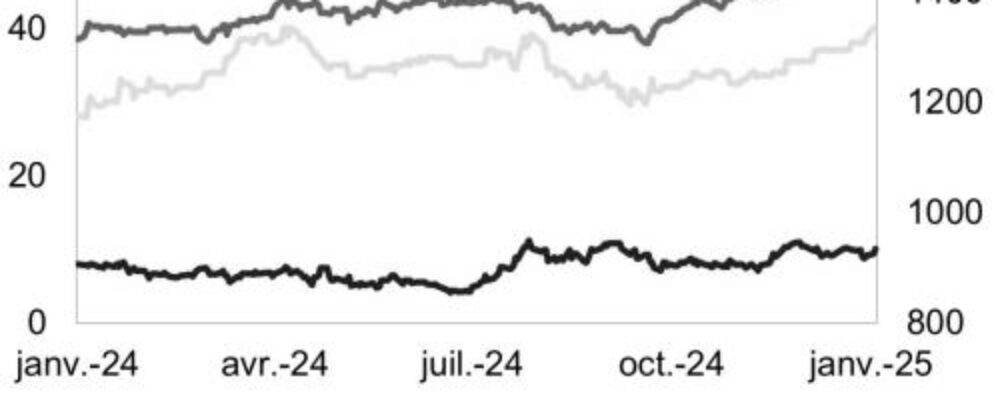This is precisely why the US has quickly moved its aircraft carriers into position close to the Israeli theatre of war to prevent the conflict from spreading. It’s also why Poland is rearming and acting as if it were one of NATO’s leading powers. Lastly, it’s the lesson that many Asian countries, chief among them Japan and the Philippines, have drawn from the conflict in Ukraine: to be effective, deterrence has to be very powerful and must be backed up by strategic alliances. It must be credible enough not only to prevent the other party from acting but also to prevent any other power from changing the prevailing status quo, not only militarily but also economically (sanctions, reprisals, etc.). For example, maintaining the status quo in the South China Sea is about not only preventing conflicts but also securing the trade flows on which the region’s countries still depend for their growth.
More players willing to act = a greater need for deterrence
The deal Australia’s prime minister recently struck with China to smooth the way for the two countries to resume their trading relationship should not be seen as a “normalisation”, since Australia’s security arrangements are now aligned more closely with the US. It is, rather, an attempt to strike a balance between economic dependence on Beijing and deterrence. Nor will it halt the derisking of strategic sectors, first and foremost those that use dual technologies (military and civilian). Moreover, the concept of what constitutes a strategic sector may be broader or narrower depending on which country is doing the defining. It’s also on the basis of this kind of balance of deterrence that the US and China are trying to negotiate the pause that was derailed last year by the “spy balloon” affair. That’s the purpose of the potential Xi-Biden meeting, which obviously will not end the strategic stand-off. Lastly, for a deterrent to be effective, the risk of incidents – whether intentional or not – must be under control. That means re-establishing emergency military communications after the short-circuit triggered by Nancy Pelosi’s visit to Taiwan. Deterrence, which is now essential for defusing escalating tensions, is first and foremost a matter of respect, and its aims must be clearly defined: securing respect for one’s sovereignty, independence, freedom and dignity. But this, of course, means nothing without the ability to deter (economically, militarily and ideologically).
Nor can any diagnosis of global geopolitics sidestep the US election calendar. Ultimately, this is central to the scenario. At this stage, the forthcoming elections look set to be a global game-changer. If Donald Trump were to be re-elected, this time not by a ragtag assemblage of voters rejecting the current political class (known as dégagisme) but by a positive vote of support, this would not have the same political meaning as in 2016: it would confirm that Trumpist ideology is now firmly rooted in the electorate and among elected Republicans. Make no mistake: in an environment of extreme political polarisation, a Trump re-election would undoubtedly usher America into the institutional unknown – a concern that has sometimes been downplayed. Any attempt to reject this claim based on the resilience of America’s institutions – and the near-sacredness of its constitution – must be taken with an increasingly large pinch of salt: those very institutions are increasingly giving off signals that they are at breaking point. In particular, the Supreme Court is increasingly out of step with part of the electorate. Similarly, the fact that some US states are demurring from Supreme Court decisions is no trivial matter, notably when it comes to highly charged issues of identity such as abortion rights and gender.
A world of double standards is a world of cognitive warfare
Seen from the outside, the US, though it is still a superpower in a great many fields, is no longer accepted as a model, not just by the international company of autocrats but also by a good chunk of the global population. Since the war in Iraq, it is no longer the world’s natural and undisputed policeman. Western democracy’s ability to ensure equal treatment for all is now being undermined by a key phenomenon whose astonishing political power has only been strengthened by the bombing of Gaza: the issue of double standards. Longstanding democracies are being pressured to admit that they don’t keep their promises and forced, for good or ill, to hear a message that can be summarised thus: “Keep out of our domestic affairs: you have no superior moral or ideological mandate to get involved in them”.
Moreover, the fact that a huge section of the global population is focused on this message is a major strategic signal. It points to what the Rand Corporation saw in 1999 as a future key tenet of grand strategy: the noosphere2. This concept, invented in 1922 by Pierre Teilhard de Chardin, presupposed the gradual emergence of a “sphere of human thought”3 and moments of global planetary consciousness arising from humankind’s increased connectedness. When strategists at Rand dug up the Greek notion of the noos and invented noopolitik, the concept of information dominance burst onto the geopolitical stage. “Conflicts will be won not by the biggest bomb but by the best story.”4 Astonishing as it may be that a French Jesuit priest should inspire US hegemonic strategy from beyond the grave, the undeniable fact is that this development ushered in modern battle of grand narratives.
Battle of the grand narratives
Wars of influence are nothing new, of course: in fact, they tend to be waged alongside struggles for power. As any reader of Sun Tzu will understand, securing a favourable position ahead of combat – or even winning without fighting – puts you at an advantage. And Joseph Nye pointed out the importance of soft power5 in the information age. But the importance of influence went up a gear at the turn of the century when new technologies ran into the cognitive sciences. The idea of cognitive warfare is becoming much more of an operational reality for all modern armies, as well as for all revisionist groups. The goal now is to use cognitive science to shift people’s beliefs and values as well as their decision-making capability. To this end, cognitive warfare makes use of emotional manipulation, identifying our cognitive biases and playing on areas of moral dissonance (our doubts and hesitations). After the land, the air, the oceans, space and cyberspace, it’s now our minds that are being fought over.
As is evident from the war in Ukraine, the attacks on Israel and the bombing of Gaza, global public opinion will constitute one of the key battlegrounds of the 21st century. This will be a high-intensity conflict in which we are already targets, victims and actors. No longer is it only states that decide who their friends and enemies are: that decision is informed first and foremost by public opinion. That’s what will determine who goes down in history as the winners in conflicts, sometimes even in defiance of the outcome of military engagements. In fact, governments are partly losing their grip on political sovereignty, which is defined precisely as the ability to name the enemy: political sovereignty is now being fought over in what are known as cognitive arenas, i.e. “social spaces in which worldviews are constructed” (social media, television studios, think tanks, NGOs, etc.).6
However, not all geopolitical and political events become pretexts for a cognitive clash. For such a clash to take place, events must come up against a key element of power or ideology and must be seized upon by actors who are particularly active in this area. That’s precisely what’s happened with the attacks by Hamas and the ensuing bombing of Gaza, and it’s precisely the trap that’s been laid not only for Israel but for all governments held hostage by public opinion. Conversely, the question of Nagorno-Karabakh, swallowed up by Baku in the space of just a few days, was not a global cognitive battleground despite the Armenian drama and the strategic importance of the Caucasus. The information war between the US and China clearly is one such battleground, and the battle is set to rumble on for years to come. This is something we need to be prepared for. Lastly, there are some moments that are particularly conducive to cognitive and information attacks: the Taiwanese and US elections are prime examples. Meanwhile, climate issues are already a key cognitive battleground.
How do these clashes play out? How do they affect us as individuals and as employees of companies keen to push the boundaries of social responsibility? These questions arise because we are and will continue to be subject to cognitive attacks of all kinds, not limited to the geopolitical arena. These attacks impact our political and economic scenarios through multiple channels, both direct and indirect. They influence our choices, who we trust and what we invest in. If we are to resist this influence, we must understand how emotional shocks play out in time and space through mental pathways in us that act as powerful transmission belts.
This means understanding how the pain of those exposed to violence is instrumentalised through the emotions of those exposed to words and images. And it means understanding the economic and geopolitical role played by our fears, our anger and our empathy.
“Crédit Agricole Group, sometimes called La banque verte due to its historical ties to farming, is a French international banking group and the world’s largest cooperative financial institution. It is France’s second-largest bank, after BNP Paribas, as well as the third largest in Europe and tenth largest in the world.”
Please visit the firm link to site






